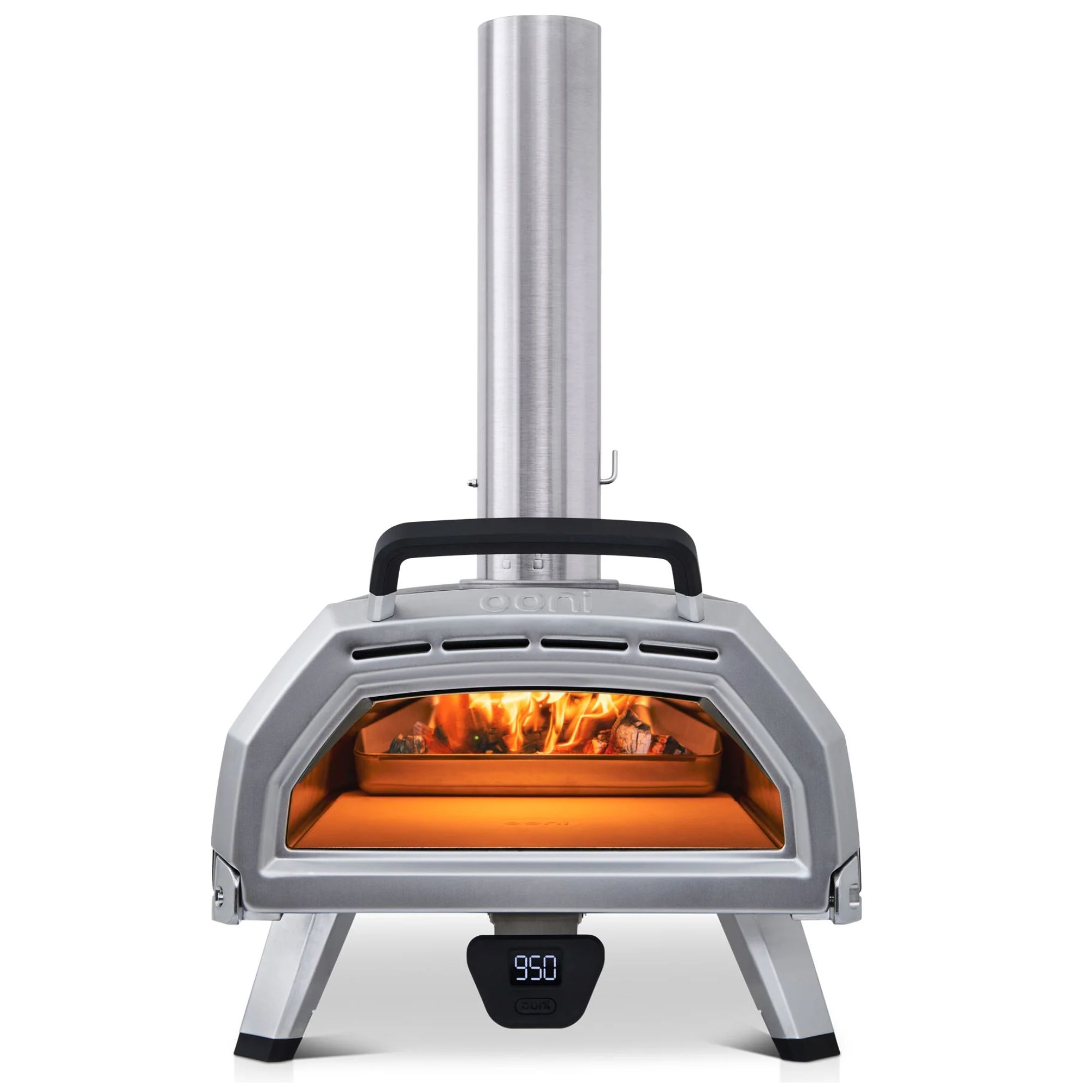Should you bother with a pizza oven? An expert tester reveals if they're actually worth the money
Why bother with a pizza oven when you've got an oven in your kitchen?

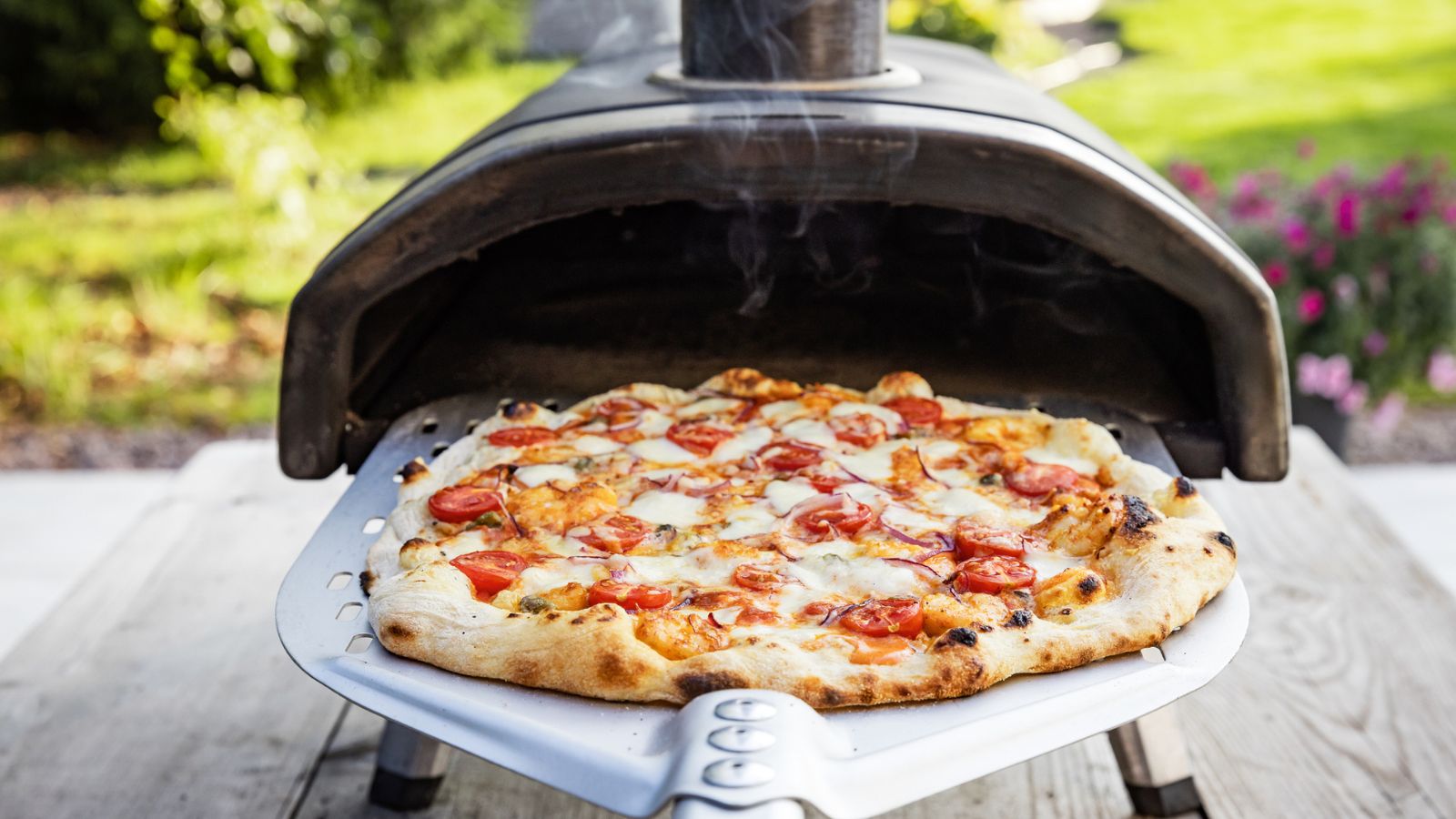
Design expertise in your inbox – from inspiring decorating ideas and beautiful celebrity homes to practical gardening advice and shopping round-ups.
You are now subscribed
Your newsletter sign-up was successful
Want to add more newsletters?

Twice a week
Homes&Gardens
The ultimate interior design resource from the world's leading experts - discover inspiring decorating ideas, color scheming know-how, garden inspiration and shopping expertise.

Once a week
In The Loop from Next In Design
Members of the Next in Design Circle will receive In the Loop, our weekly email filled with trade news, names to know and spotlight moments. Together we’re building a brighter design future.

Twice a week
Cucina
Whether you’re passionate about hosting exquisite dinners, experimenting with culinary trends, or perfecting your kitchen's design with timeless elegance and innovative functionality, this newsletter is here to inspire
Pizza ovens are increasingly popular. An appliance that once looked like a fad is going from strength to strength, with more models coming onto the market each year.
However, it's smart to wonder if a pizza oven is really worth the money. These appliances are notoriously expensive, and when you have a perfectly good oven in the kitchen it can seem a little questionable to invest in one.
I've tested plenty of the best pizza ovens over the years and I think they can be worth the money. They make far better-tasting pizza than you can make in your average oven. Plus, they're a great way to expand an outdoor kitchen and can totally transform your hosting. However, not all the marketing claims stack up. Here are my expert verdicts after years of testing.
1. Pizza ovens taste better
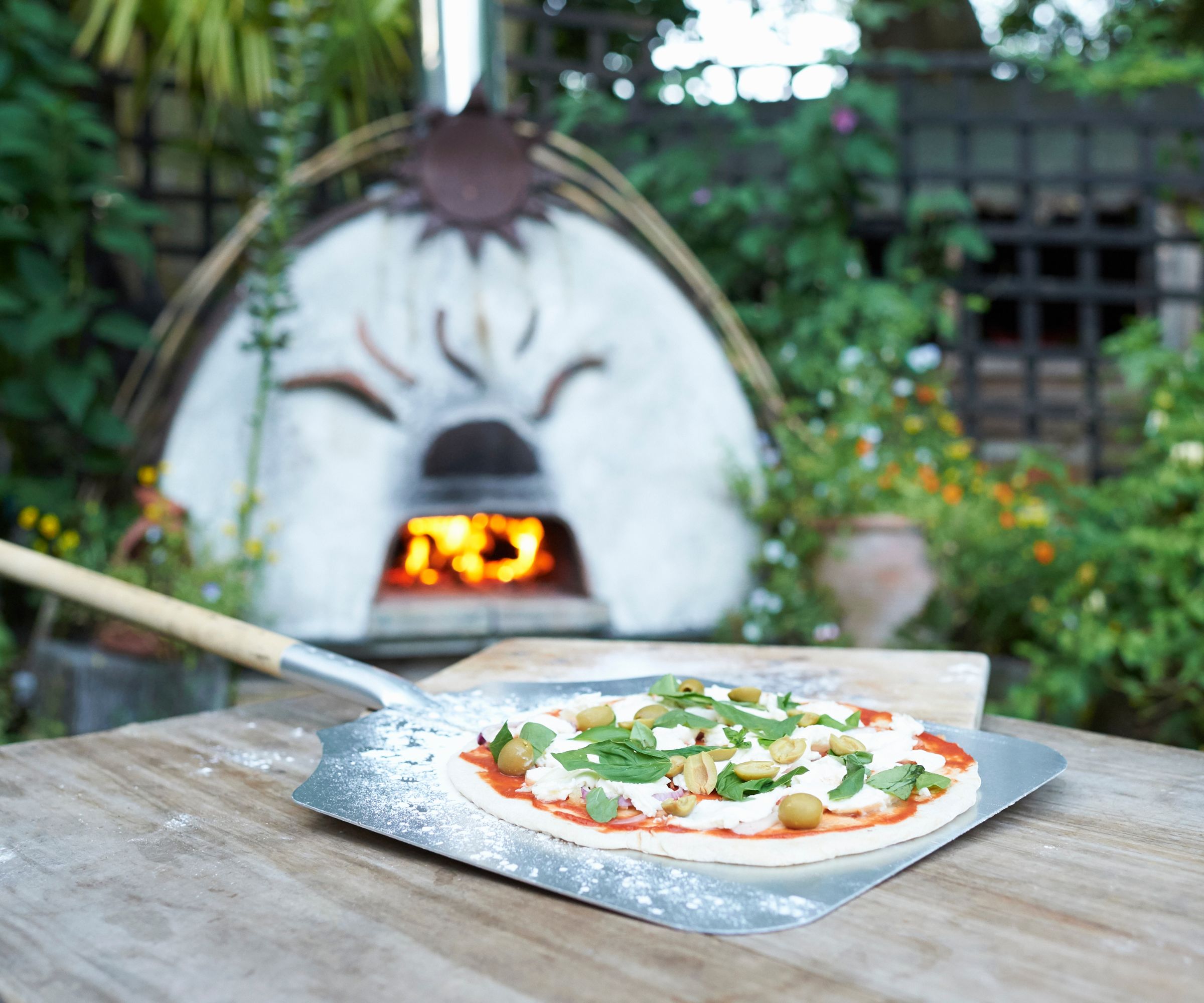
I was skeptical when I first tried a pizza oven a few years ago. I didn't think it could make that much difference. However, a pizza oven makes much better pizza than a regular oven. That's because pizza ovens are hotter than kitchen ovens.
Domestic pizza ovens are usually twice as hot as domestic kitchen ovens. Kitchen ovens in most American homes top out at around 500°F. A domestic pizza oven, however, can reach 1100°F.
This difference makes for much better-tasting pizza because it means a crisper crust, melted, golden cheese, and sauce which cooks but doesn't dry out, as the oven is so fast.
The pizza stone also makes a huge difference. Mechanically, there's little difference between baking a pizza on a baking tray in a kitchen oven and baking a sheet cake. This leads to a moister, soggier crust than a pizza oven.
Design expertise in your inbox – from inspiring decorating ideas and beautiful celebrity homes to practical gardening advice and shopping round-ups.
That's because a pizza oven stone is incredibly conductive and porous. Because it's conductive, it absorbs the high heat in the oven, making for an incredibly hot baking surface. Unlike a metal tray, a pizza stone also absorbs moisture, so the crust is drier. Altogether, it makes for a much crisper crust.
Wood and gas pizza ovens have a rolling flame that melts the cheese and makes it golden in seconds, a process that takes much longer in a domestic oven and dries out the cheese.
On top of that, wood-fired pizza ovens have a smoky flavor that other ovens can't match. It tastes much more like an authentic pizza than one made in a typical oven.

This is the oven I always recommend. It's one of the least expensive models on the market, but it tastes incredible thanks to smoky wood pellets. It's a great option if you're on a budget.
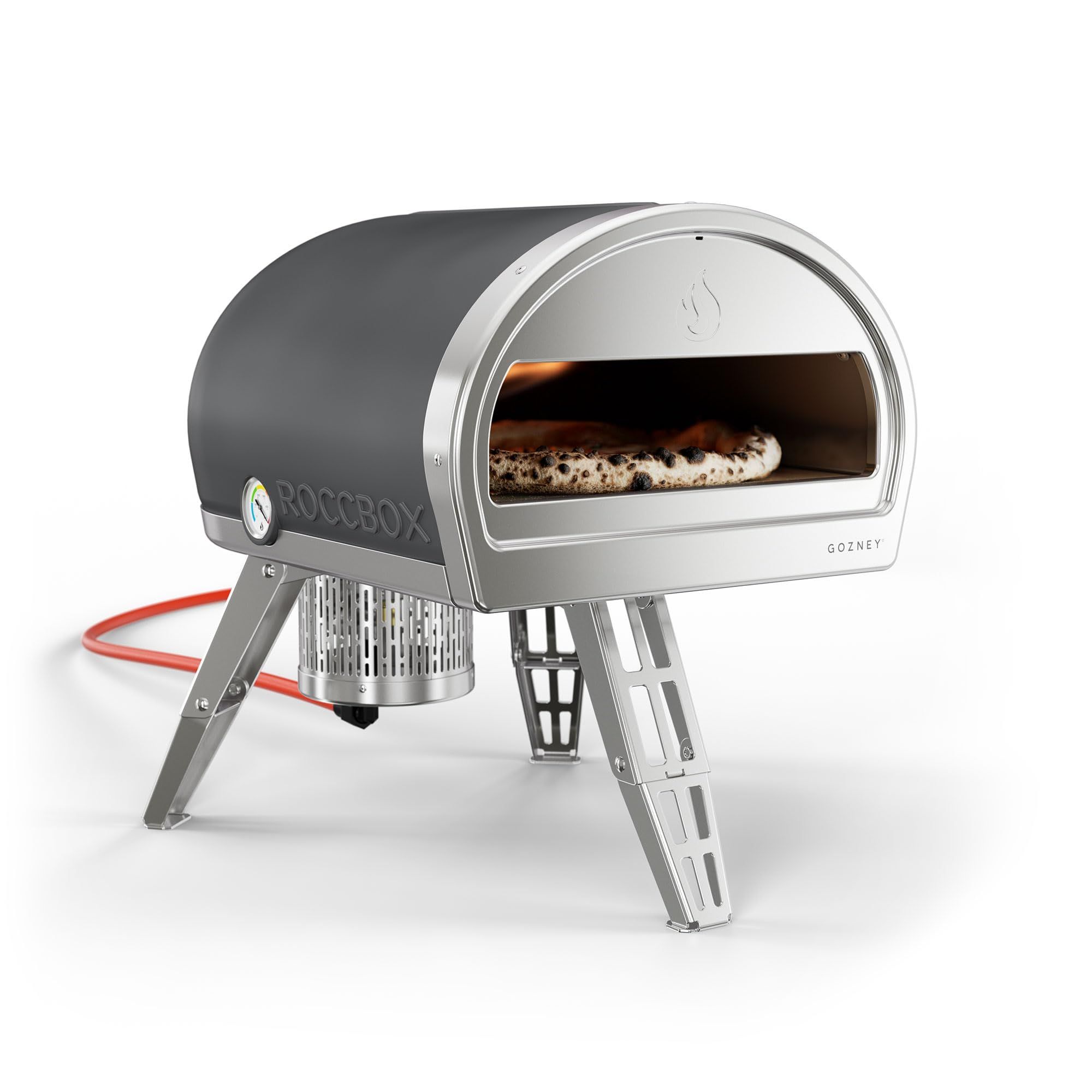
The Gozney Roccbox is a great choice if you're new to making homemade pizzas. It runs on gas, so it's easy to set up, and it has a handy thermometer built into the side to make it easy see when the oven is hot enough to use.
2. Domestic pizza ovens are faster - ish
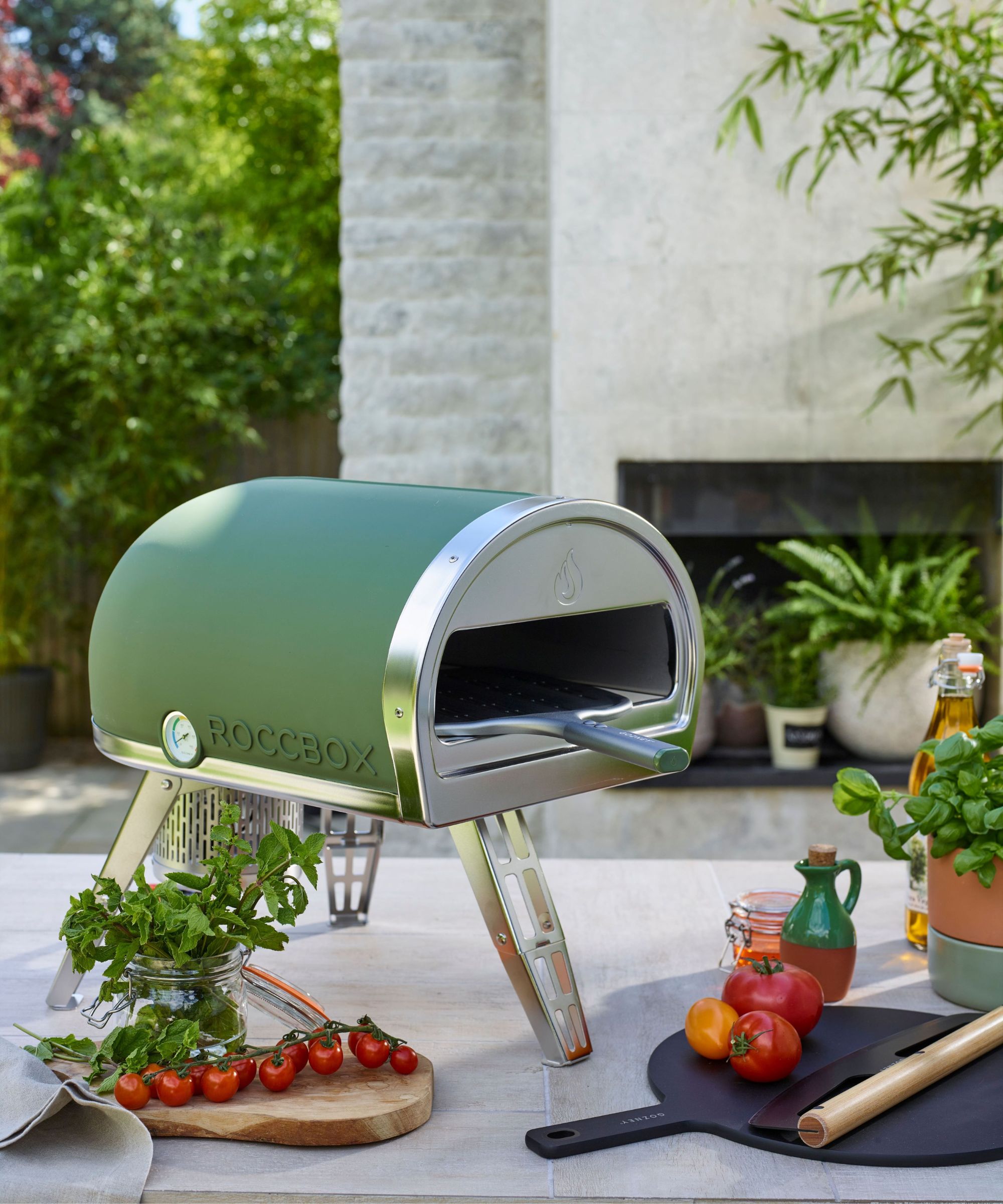
All of the above means that domestic pizza ovens are much faster than a kitchen oven. A homemade pizza baked in a domestic kitchen oven usually cooks in 10-12 minutes. In a good pizza oven, it will only take 1-2 minutes - around ten times faster.
However, this doesn't mean that you can cook a lot of pizza quickly. Firstly, all pizza ovens take longer to heat up than domestic ovens, with most reaching temperature after 15 or 20 minutes, slightly longer than most domestic ovens.
While pizza ovens cook much faster, they're inefficient. Every time you open the door to your pizza oven, you lose a lot of heat, so you need to wait a few minutes for the pizza oven to get back to temperature. This means that you can't just take pizzas in and out of the oven as you need them - you have to wait for the temperature to return to normal.
On top of that, most pizza ovens - with the notable exceptions of the Ooni Koda 2 and Alfa Moderno - can only hold one pizza at a time. With a little planning, you can cook three or four pizzas in a domestic oven and get them to the table at roughly the same time. A domestic pizza oven, however, needs several turns to make the same amount of pizza. I've been at pizza parties where there's been a 30-minute gap between the first guest getting a pizza and the last.
So while pizza ovens are much faster at cooking a single pizza, the time spent in set up, fuel maintenance, and the size of the oven mean that they aren't that much faster than a domestic oven.
3. You can cook lots of different meals in a pizza oven - sort of
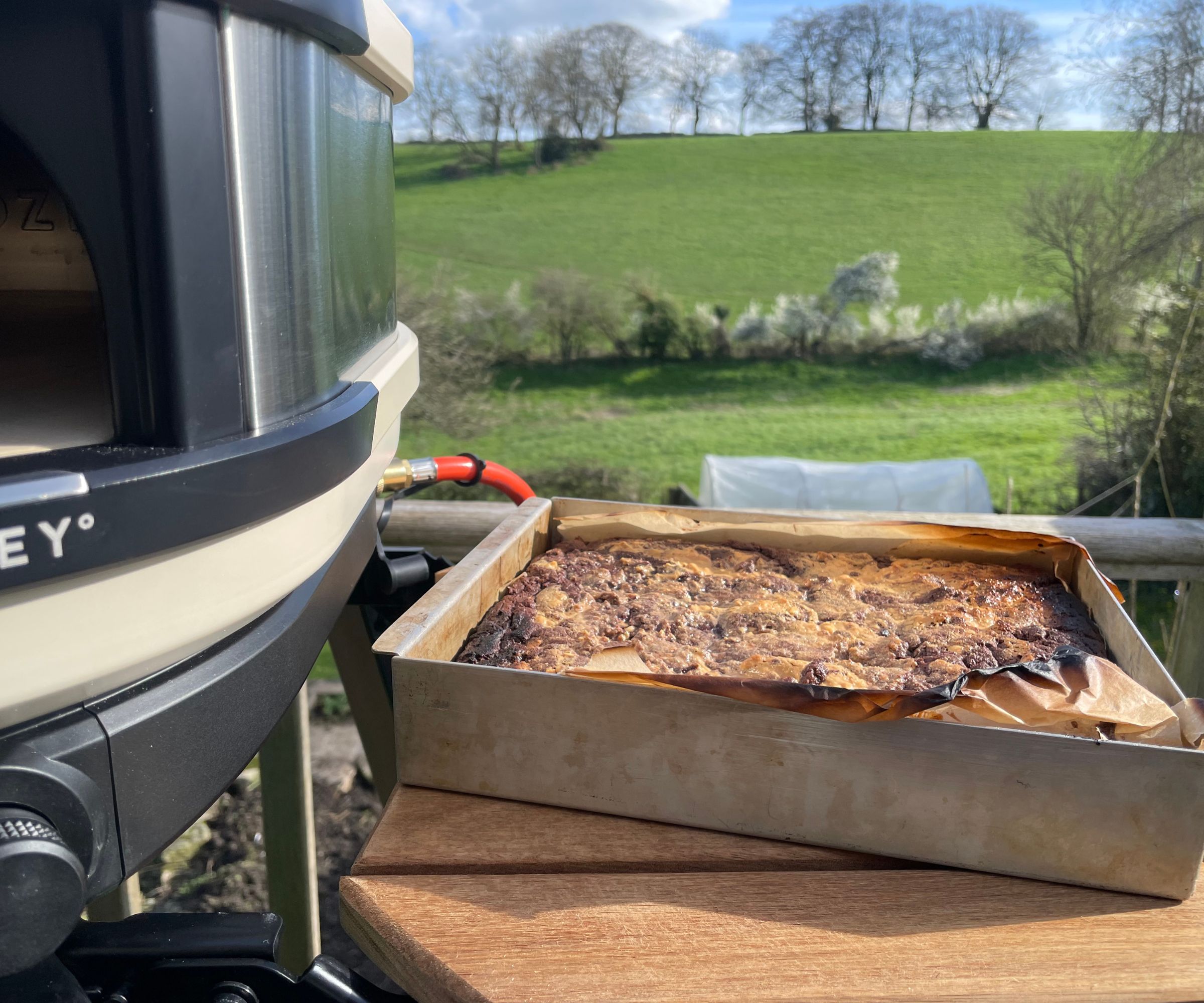
Testing brownies in the Gozney Arc
Many people are against pizza ovens because they think you can only cook pizzas. However, there are lots of things you can try in a pizza oven.
First of all, there's the obvious: pizza ovens are also great for baking calzones. They're amazing for making flatbreads and focaccia. One of the best things I've had from a pizza oven was a garlic flatbread cooked with red onions and rosemary.
But it doesn't just have to be bread. In our tests, we've tried roasted vegetables, lamb, and chicken. In fact, we've found that pizza ovens can be great for Mexican and Central American food because you can get a great char on your ingredients. You can see in the image above that you can even use pizza ovens to bake sweet dishes like brownies.
The problem, however, is that pizza ovens are flat. The entry hole and interior cavity are usually pretty thin, so you can't, for example, roast a whole chicken because it won't fit into the oven. You can only cook one dish at a time, but in a domestic oven, you can split several items across different racks.
If you're cooking sweet desserts, you'll also find that whatever you're baking might taste a little smoky. That can be delicious with rich, intense flavors like a chocolate brownie or a Basque cheesecake, but it won't work for lighter dishes like a vanilla sponge cake.
4. Pizza ovens are expensive
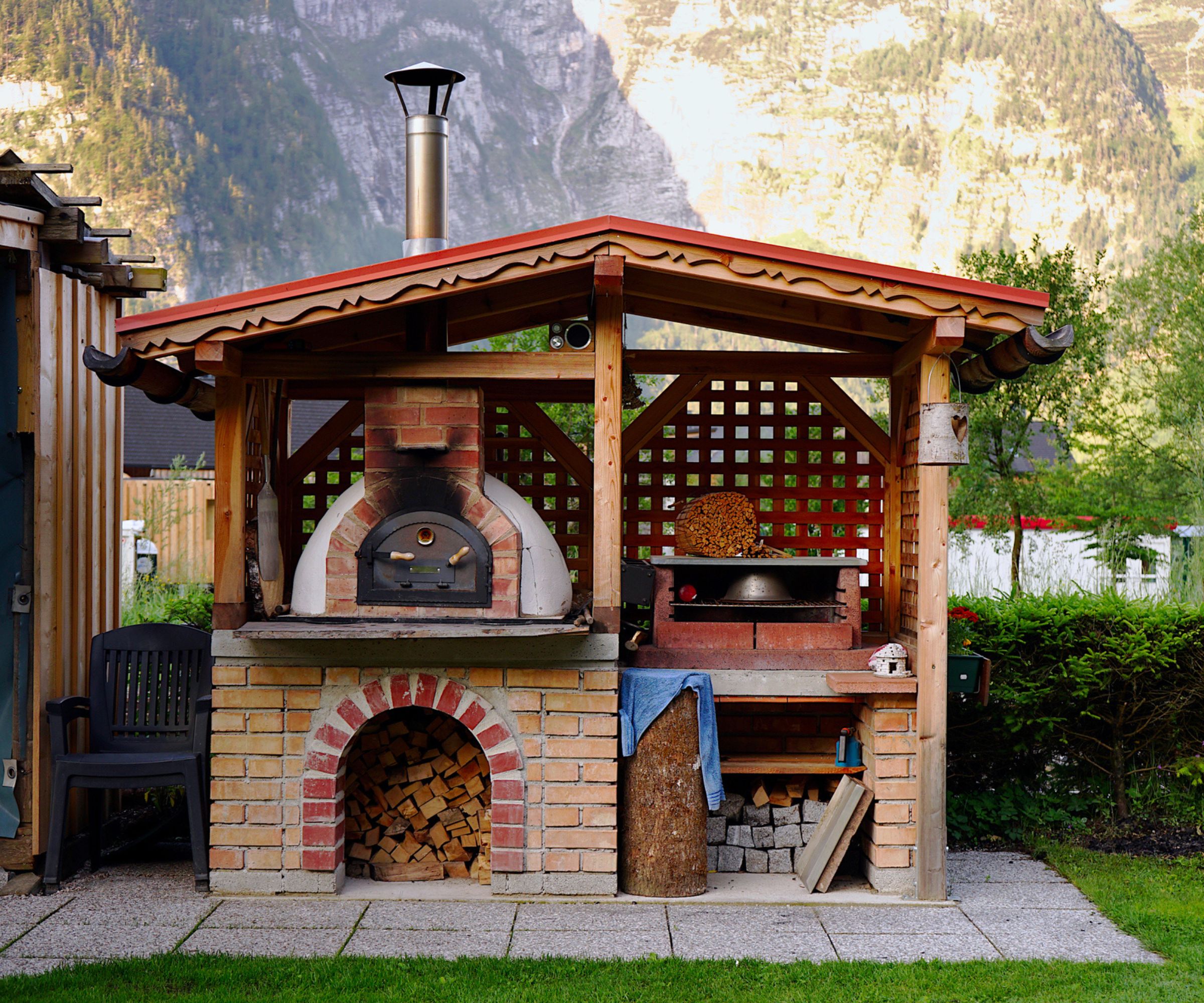
Pizza ovens cost a lot of money. Stylish, top-line pizza ovens to form the focal point of an outdoor kitchen can be incredibly expensive. For example, an Ooni Koda Max 2 is $1000, a Gozney Dome is $2000, a five-pizza Alfa Moderno is $8,800, and a custom oven costs even more.
The examples above are extreme, but you can expect to pay between $300-$500 for a good mid-range oven. That's a lot of money to spend on pizza when you already have an oven in your kitchen or can call for takeout.
5. They only work outdoors

The two most common fuel types for pizza ovens are gas and wood. Because of the fumes, you can only use these types of ovens outdoors, so if you don't have any outdoor space or an HOA that's tight on outdoor cooking, you may not be able to buy one of these ovens in the first place.
While you can buy indoor pizza ovens, I don't recommend them. Indoor pizza ovens are really just glorified toaster ovens. While they're hotter than a kitchen oven, they're far off the heat generated by an outdoor oven. Unlike gas or wood pizza ovens, indoor pizza ovens cook with a hot electric element like a toaster oven or electric oven.
This means that apart from the pizza stone making a slightly crisper base, an indoor pizza oven is a little pointless. It's unnecessary cost and storage for another oven. After testing several models, I don't think indoor pizza ovens are worth the money.
6. They only work half the year
This doesn't apply if you live somewhere hot like California, but for a lot of the country, pizza ovens are only usable half the year. If you stick to my advice and only buy outdoor ovens, your oven might be out of commission for a big chunk of the year. No one wants to trudge through freezing snow just to bake a pizza.
In northern parts of the country, you can only use the pizza oven in late spring through early fall. It's a lot to spend on a kitchen appliance you won't use half the time, but then the same can be said for a grill.
Should you bother with a pizza oven?
In conclusion, I think a pizza oven can be fun, but only if you have a few hundred dollars spare and love pizza. They can be great for outdoor dining and entertaining guests with a pizza party.
If you're an amateur chef, a pizza oven is an interesting tool for experimenting with different dishes. However, if you live somewhere cold, are on a budget, or just want an occasional pizza, it's not worth the investment.

As a gardens and lifestyle contributor, Alex makes sure readers find the right information to help them make the best purchase. Alex got his start in reviewing at the iconic Good Housekeeping Institute, testing a wide range of household products and appliances. He then moved to BBC Gardeners’ World Magazine, assessing gardening tools, machinery, and wildlife products.
